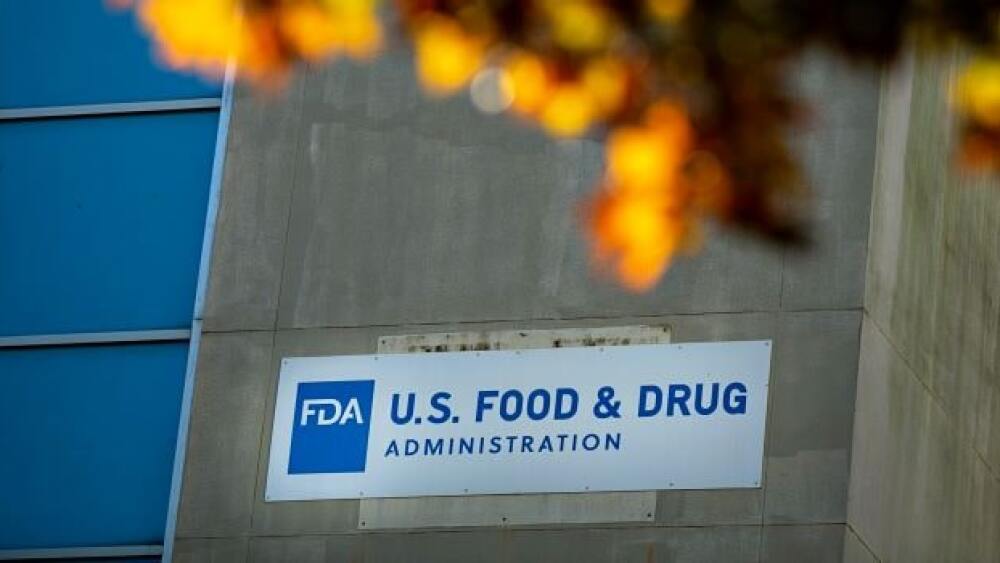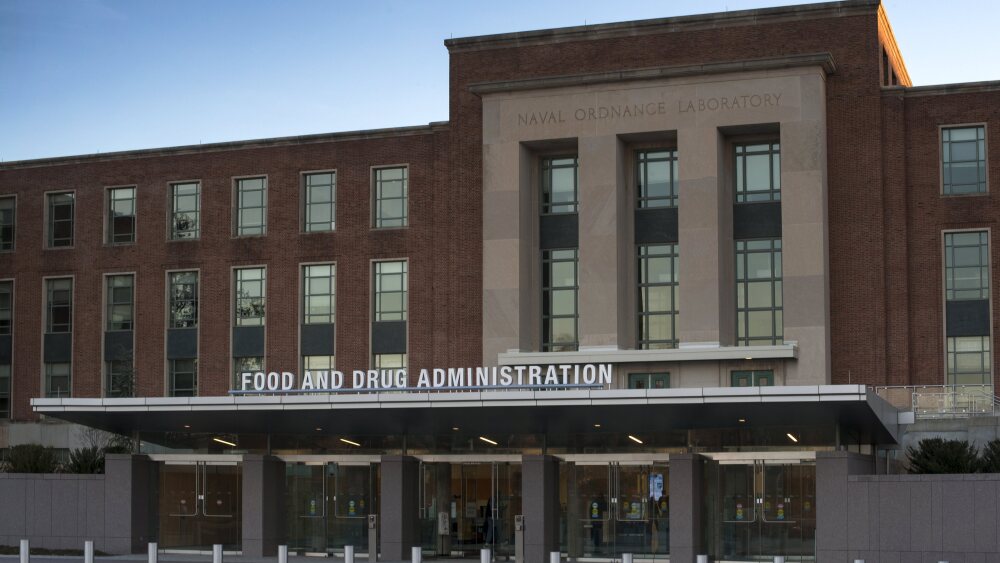VBI Vaccines and Hepion Pharmaceuticals have received Orphan Drug Designations from the U.S. Food and Drug Administration for their experimental cancer drugs.
Courtesy Jason Armond/Los Angeles Times/Getty Images
VBI Vaccines and Hepion Pharmaceuticals received Orphan Drug Designations from the U.S. Food and Drug Administration Friday for their experimental cancer drugs.
Orphan Drug Designations are granted for drugs that show promise for treatment, prevention or diagnosis of orphan diseases, which in the U.S. is defined as affecting fewer than 200,000 people. It comes with certain incentives, including tax credits for qualified clinical trials, user fees exemption and potential seven years of market exclusivity after approval.
Based in Cambridge, MA, VBI received its designation for a bivalent cytomegalovirus gB/pp65 enveloped virus-like particles (VLPs) designed to treat glioblastoma, a type of brain cancer. The company focuses on developing VLPs, leveraging a proprietary enveloped VLP (eVLP) platform technology. These are so-called cancer vaccines that act by mimicking viruses with the intention of stimulating the human immune system.
Earlier this month, the company presented new tumor response and overall survival (OS) data from the ongoing Phase IIa trial of VBI-1901 in recurrent glioblastoma. It was included in a poster presentation at the 2022 American Society of Clinical Oncology (ASCO) Annual Meeting.
David E. Anderson, Ph.D., chief scientific officer of VBI, said at the time, “We continue to be motivated by the data seen in this Phase IIa study of VBI-1901 as we endeavor to provide new treatment options to patients with very few available to them. Considering the high mortality rate among GBM patients, particularly in the recurrent setting, median overall survival of approximately 13-15 months seen in our two study arms suggests an additional survival benefit of nearly six months in comparison with historical control data in the recurrent population after treatment with a monotherapy.”
He added, “Moreover, the correlation of tumor responses and clinical response benefit observed in tandem is very encouraging. We remain in close discussion with our study investigators and scientific advisors as we move toward the next stages of development in both the recurrent and frontline GBM settings, and look forward to advancing this development program as diligently as possible.”
Hepion received the designation for rencofilstat for hepatocellular carcinoma. Rencofilstat is the company’s lead oral drug candidate for nonalcoholic steatohepatitis (NASH) and viral hepatitis-induced liver disease.
The drug binds to Cyclophilin A, which blocks it from binding to specific inflammatory cell receptors. This decreases the infiltration of the inflammatory cells into the tissue and lessens harmful inflammatory responses that can cause damage to the liver.
It also blocks the actions of Cycophilin B, which regulates collagen production in stellate cells, causing fibrosis (scarring) in the liver. And it binds to Cyclophilin D, preventing or reversing the formation of pores in the mitochondrial membrane that causes the mitochondria to rupture. This allows the mitochondria to resume normal energy production and helps liver cells survive.
In January, Hepion, headquartered in Edison, NJ, announced the results of a nonclinical research study of rencofilstat that decreased liver tumor growth and extended mouse survival when combined with an anti-PD-1 antibody, or immune checkpoint inhibitor. The effects were seen in fatty livers, which may be associated with less ant-PD-1 efficacy in hepatocellular carcinoma (HCC). This suggests that the drug may improve the treatment potential of anti-PD-1 treatment in human liver cancer. Examples of anti-PD-1 drugs include Merck’s Keytruda (pembrolizumab) and Bristol Myers Squibb’s Opdivo (nivolumab).
At the time, Daren Ure, Ph.D., Hepion’s chief scientific officer, noted, “Anti-PD-1 therapies that stimulate immune cell attack on cancer cells are approved and effective in many types of cancer, but they have had limited success in HCC clinical trials. The lack of clinical outcomes success may be partly due to the occurrence of HCC in individuals that also have non-alcoholic fatty liver disease (NAFLD) or the more advanced form of the disease, NASH.”
He added, “NAFLD and NASH are both highly prevalent across the globe, and recent reports indicate that a fatty liver environment blocks the efficacy of anti-PD-1 drugs, and perhaps other checkpoint inhibitors. In addition, as successful treatments for viral hepatitis have been implemented, NASH has been quickly becoming the leading cause of HCC.”





